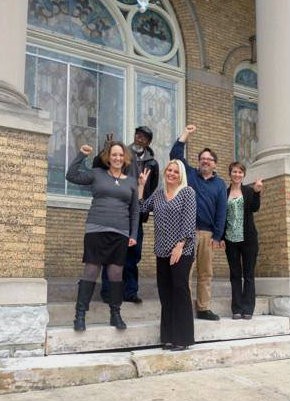Sustainable expectations

I keep getting lost in this sprawling 38,000-square-foot building. Each time I go astray, I find a new room to explore. A few days ago, the sexton opened a random corner door, expecting to see a closet; instead, she discovered a fully functioning kitchen. I’m not surprised that the building is listed on the National Register of Historic Places.
Climbing the steps, I imagine the building in its glory, when it housed Saint Andrew’s United Methodist Church, which was one of the largest congregations in Chattanooga, Tennessee. The church closed in 2004 and transferred ownership of the building to Saint Andrew’s Center, a faith-based organization that served a growing immigrant population. The center became the home for Mercy Junction, the ministry that my husband, Brian Merritt, founded as an evangelist for the Presbytery of East Tennessee.
Mercy Junction has been in existence for about two and a half years, and it has a dedicated group of people, but it’s far from being financially self-sustaining. When the Saint Andrew’s Center board asked Mercy Junction to take over as manager of the building, overseeing maintenance and rental, it agreed—and added staff quickly, making sure it had personnel adequate for its mission.





